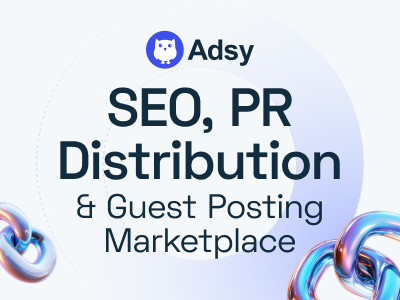How Artificial Intelligence and Machine Learning Are Reshaping the Future
Introduction
Artificial Intelligence (AI) and Machine Learning (ML) are no longer just buzzwords; they are fundamental technologies driving transformative change in industries globally. From powering seamless recommendations on Netflix to enabling autonomous vehicles, AI and ML influence nearly every aspect of modern life.
But what makes these technologies so crucial? How are they being applied, and what challenges lie ahead?
This blog post will explore how AI and ML are shaping the future for businesses, researchers, and individuals. By the end, you’ll gain a comprehensive understanding of how these technologies are disrupting industries while opening the door to innovation.
What Are AI and Machine Learning?
Understanding Artificial Intelligence
Artificial Intelligence refers to machines or systems capable of performing tasks that typically require human intelligence. AI includes applications like decision-making algorithms, speech recognition, natural language processing (NLP), and computer vision. Essentially, AI is about building smart systems that can mimic human behavior.
Examples include:
- Virtual assistants like Siri and Alexa
- AI-driven fraud detection in banking
- Chatbots providing automated customer support
What Is Machine Learning?
Machine Learning, a subset of AI, focuses on giving machines the ability to learn and improve from data without being explicitly programmed. ML employs algorithms designed to analyze patterns, make predictions, and optimize performance over time.
For instance:
- ML algorithms enable spam filters to identify suspicious emails.
- They fuel recommendations on platforms like YouTube and Spotify.
- They’re used in predictive maintenance tools to prevent system failures proactively.
Machine Learning can be divided into three main categories:
- Supervised Learning - Learning from labeled data.
- Unsupervised Learning - Discovering patterns in unlabeled data.
- Reinforcement Learning - Learning through trial and error to maximize rewards.
With this foundation, let's take a closer look at how these technologies are reshaping industries.
Applications of AI and Machine Learning Across Industries
1. Healthcare
AI and ML are revolutionizing the healthcare sector, improving patient outcomes and optimizing operational efficiency.
- Medical Imaging: AI-powered tools like those from Zebra Medical Vision analyze X-rays, MRIs, and CT scans to detect abnormalities early.
- Personalized Treatment Plans: ML algorithms help tailor treatments based on a patient’s unique genetic makeup and medical history.
- Drug Discovery: With tools like IBM Watson, pharmaceutical companies are accelerating research and testing for new treatments.
According to a McKinsey report, AI applications could generate $100 billion annually in improved diagnostic and operational efficiency globally.
2. Finance
The finance industry has been quick to adopt AI for automation and intelligent decision-making.
- Fraud Detection: Algorithms analyze transaction data in real time to detect suspicious activities with accuracy.
- Risk Management: Predictive models help businesses mitigate risks by forecasting market trends.
- Robo-Advisors: Platforms like Betterment use AI to manage portfolios and provide personalized financial advice.
Such tools help minimize human error, reduce operational costs, and improve financial outcomes.
3. Retail
AI and ML are reshaping the retail experience, enabling businesses to deliver personalized customer shopping experiences.
- Product Recommendations: Machine Learning algorithms analyze browsing and purchase histories to recommend relevant products. Amazon’s algorithm is a prime example.
- Inventory Forecasting: Optimizing stock levels by predicting customer demand.
- Customer Service: AI-powered chatbots, like those used by H&M, resolve common customer queries instantly.
The integration of AI into retail is increasing conversion rates while enhancing user experience.
4. Autonomous Vehicles
Self-driving cars, powered by AI, represent one of the most exciting applications of machine learning. These vehicles rely on:
- Computer Vision: To detect pedestrians, other vehicles, and road signs.
- Reinforcement Learning Models: To fine-tune decision-making while on the road.
Companies like Tesla and Waymo are at the forefront of this innovation, aiming to make transportation safer and more efficient.
5. Education
AI is powering smart educational tools designed to enhance student engagement and customize learning experiences.
- Personalized Learning Plans: Systems like Carnegie Learning adapt content to individual learners based on their pace and capabilities.
- AI Tutors: Chatbots assist in answering student questions outside of classroom hours.
- Administrative Support: ML algorithms streamline teacher scheduling and resource allocation.
This combination of automation and personalization is transforming education at scale.
Challenges in AI and ML Implementation
Though promising, AI and ML come with unique challenges that must be addressed to achieve widespread adoption.
1. Data Privacy Concerns
AI relies on vast quantities of data. However, misuse of such data may violate individual privacy rights. Businesses must adopt stringent measures to ensure the ethical use of AI technologies.
2. Lack of Skilled Talent
Deploying AI systems requires domain expertise in areas such as data science, mathematics, and software engineering. The shortage of such talent slows technological progress.
3. Bias in Algorithms
AI systems learn from the data they're fed. If this data reflects biased or incomplete information, they may perpetuate those biases in decision-making processes. Ensuring data fairness is critical.
4. High Implementation Costs
Developing and deploying AI models can be expensive, particularly for smaller businesses. Accessible AI solutions are essential for democratizing its benefits.
How AI and ML Are Reshaping the Future
Artificial Intelligence and Machine Learning are poised to shape the future in remarkable ways:
- Sustainable Cities: AI will optimize traffic flow, reduce energy waste, and manage urban infrastructure efficiently.
- Enhanced Cybersecurity: AI algorithms can identify vulnerabilities and predict attacks before they happen.
- Space Exploration: With AI onboard satellites and rovers, we are poised to vastly expand our knowledge of space systems.
According to PwC, AI will add $15.7 trillion to the global economy by 2030, with its broad impact spanning across sectors.
How to Start Adopting AI/ML in Your Business
Integrating AI/ML into your business may seem daunting, but you don’t need to reinvent the wheel. Here are actionable steps to get started:
- Identify repetitive workflows or processes that could benefit from automation.
- Leverage cloud-based AI platforms for scalable solutions. Examples include AWS AI and Google Cloud AI.
- Start small, pilot one project, track measurable outcomes, and expand gradually.
- Invest in upskilling employees to ensure seamless integration.
Unlock Innovation with AI and Machine Learning
Artificial Intelligence and Machine Learning are no longer just futuristic concepts. They are here, actively transforming industries, improving efficiency, and enabling innovation. Whether you're a tech enthusiast, researcher, or business leader, understanding these technologies is vital to staying competitive in today’s fast-evolving landscape.
If you’re looking to explore practical AI/ML tools, there’s no better time to start. Begin experimenting with applications and prepare your business for the tech-driven era ahead.














No comments